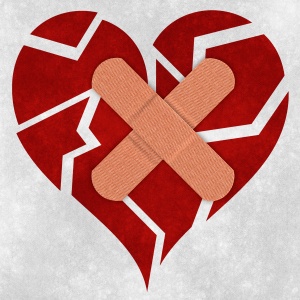The Breakdown
Emotional abuse is difficult to detect with the untrained eye. The wounds are deep and continually reopened. The abuser usually knows all of your deepest secrets, fears, and passions. He knows your strengths, your weaknesses, and your heart’s desire. He desperately needs you to need him! No matter what you ask of the abuser, those requests will positively remain unanswered. Emotional abusers are not always men! Regardless, if you think you are in an abusive relationship, the first thing you must do is identify the signs.
 Typically, the abused will endure the pain over a long period of time, and may often try unsuccessfully, to put an end to the vicious cycle. My memoir, Broken Glass, tells the story of little girl (me), trying to find her purpose in life a midst abuse, bereavement, and heartbreak. After my mother died of pneumonia when I was just ten years old, my journey began! Along the way, there were numerous accounts of emotional, verbal, and physical abuse and the anger that came along with it. Naturally, after reaching a breaking point, I’d erupt and wind up landing myself in more trouble than before! The truth is, I still struggle with it today. Adults however, express anger on varying levels. It may arise due to marital problems, quarrelsome family members, trouble at work, or a even an erratic driver who pushes you to the brink of extreme road rage! Most often, the roots of anger and aggression lie within the baggage accumulated during the childhood years. Abused children may grow up to become passive aggressive adults. The question is, how can one unpack that baggage and learn to handle life’s curve balls without having a full-fledged meltdown?
Typically, the abused will endure the pain over a long period of time, and may often try unsuccessfully, to put an end to the vicious cycle. My memoir, Broken Glass, tells the story of little girl (me), trying to find her purpose in life a midst abuse, bereavement, and heartbreak. After my mother died of pneumonia when I was just ten years old, my journey began! Along the way, there were numerous accounts of emotional, verbal, and physical abuse and the anger that came along with it. Naturally, after reaching a breaking point, I’d erupt and wind up landing myself in more trouble than before! The truth is, I still struggle with it today. Adults however, express anger on varying levels. It may arise due to marital problems, quarrelsome family members, trouble at work, or a even an erratic driver who pushes you to the brink of extreme road rage! Most often, the roots of anger and aggression lie within the baggage accumulated during the childhood years. Abused children may grow up to become passive aggressive adults. The question is, how can one unpack that baggage and learn to handle life’s curve balls without having a full-fledged meltdown?
The one thing we all must understand is that in children, the ability to reason and make rational decisions in the face of anger is controlled by the prefrontal cortex. This is the region of the brain located just behind the forehead. In teens, as research suggests, the frontal lobes of the brain are not fully developed until about age 25. This would explain why adolescents can ingest a the slightest conflict and irrationally incite a riot in the school cafeteria! In many cases, they simply cannot deescalate confrontation and minor disputes among peers. Therefore, adolescents are notorious for acting before thinking. A teen who is a victim of emotional abuse is a prime candidate for such behavior.
Abused children may develop a sense of learned helplessness, a psychological condition in which a person or animal has been exposed to a harmful stimulus for so long with no relief, that eventually the victim stops trying to escape. He believes that there is nothing he can do to make his situation better. Left untreated, this can follow children into their adult lives. As a result, the self esteem of abused person is usually low. Knowing no other way of life, victims of childhood abuse continue to find themselves involved in unhealthy, marriages, friendships, and employer/employee relationships. They may even grow up to abuse others in ways that mirror their own experiences.
Here’s my advice on how to identify an emotional abuser. Evaluate your relationships and determine whether the following signs of emotional abuse apply to you or someone you love.
- Demeaning – The abuser attacks the victim’s character and humiliates her in front of family and friends. The abuser makes the victim believe that her thoughts and feelings are invalid, and that she is not authorized to make any decisions unless she consults him first.
- Gaslighting – The abuser provides false information or denies accounts of previous abuse in an attempt to make the victim doubt her own memory. This crazy-making usually takes the form of a violent argument one night, and a harmonious relationship the next day. The abuser attempts to make the victim believe that things are not happening the way she truly perceives.
- Isolating – The victim often feels guilty about spending time with friends and family, or doing any activity that does not include the abuser. He often convinces the victim that other people in her life don’t like or care for her the way he does, even suggesting that they side with him about her flaws. He may say negative things about the people she cares about in a effort to deter her from nurturing other relationships. Any display of emotion by the victim related to someone else, such grieving after the death of a loved one, helping a friend in need, or being available during a family crisis infuriates the abuser. Employers may pressure employees to shun or isolate other coworkers simply because he or she does not like that person. Failure to comply could likely result in torment for the victim.
- Criticizing – The victim just cannot do anything right in the eyes of the abuser. No matter what good she does at home, in the workplace, or in the community, the abuser accentuates the negative. He may acknowledge accomplishments, only to follow up with a complete list of her shortcomings. Eventually, the victim begins to devalue her own worth, growing accustomed to the negative picture the abuser has painted of her.
- Blaming – If the victim should strike up the nerve to confront the abuser about his behavior, he will go to great lengths to convince her that all of his outbursts are her fault. He may say things like, “I would’t have to fuss if you would just do what I tell you to do!” He might also suggest that, “If you weren’t such a sorry excuse for a wife/secretary/mother (insert other titles here), I would spend more time with you!” Thirty seconds into a conversation about the abuser’s behavior, the story is flipped, and the topic has shifted onto how the victim has caused it all.
- Threatening – The abuser may threaten to leave the relationship. It is an attempt to keep the victim guessing about what his next move will be. The victim “walks on eggshells” in fear of angering the abuser, and causing further conflict.
- The Silent Treatment – The abuser punishes the victim for doing or saying something “wrong.” This type of psychological abuse may continue until the victim changes her behavior by apologizing to the abuser (even if she did not create the conflict), begging for forgiveness, or promising not do make the abuser angry again.
How To Stop It
 Love yourself! Remember, the abuser knows you are emotionally spent. He counts on your low self esteem, lack of self confidence, and reluctance to stand up for yourself to keep the cycle of abuse going. The more you allow the abuser to manipulate you through these channels, the longer the abuse will persist. Do not allow yourself to be isolated from friends and family members. Remember, you need support!
Love yourself! Remember, the abuser knows you are emotionally spent. He counts on your low self esteem, lack of self confidence, and reluctance to stand up for yourself to keep the cycle of abuse going. The more you allow the abuser to manipulate you through these channels, the longer the abuse will persist. Do not allow yourself to be isolated from friends and family members. Remember, you need support!
Know who you’re dealing with. More than likely, the abuser chose you because he recognized your vulnerabilities and had his own insecurities. The abuser needs to surround himself with people whom he feels are of equal or lesser value in order to feel important and respected. Anyone who disagrees with his opinions, points out his weaknesses, or proves him wrong in front of others will surely feel his wrath.
Change you! Don’t waste precious time hoping the abuser will wake up one morning and magically stop mistreating you. IT’S NOT GOING TO HAPPEN (unless there’s a miracle)! What you can do however, is change the way you respond to the abuse. This may take some time to master, but once you begin to love yourself, you will see a spike in your self esteem. Seek counselling and educate yourself about emotional abuse. In time, you’ll lose the need to have other’s approval to validate who you are.
Additional Information:
EMOTIONAL ABUSE/Dr.Pat Holliday/Dr. Sabrina/Marshall Perot 01 …
www.blogtalkradio.com1/17/13
http://www.miracleinternetchurch.com/ebooks Emotional Illness SYMPTOMS OF EMOTIONAL ABUSE May people assume that if they’re not being physically abused by their partner, then they are not being abused. This many …
Emotional Abuse Is Child Abuse, Too | McLane Children’s Scott …
blog.swchildrens.org10/2/12
Scott & White Child Abuse Outreach Coordinator details emotional abuse of children and suggests resources for getting help.
Psychological Abuse Just As Damaging As Physical … – Psych Central
psychcentral.com7/31/12
Psychological abuse can be just as damaging to a child’s physical, mental and emotional health as physical abuse, according to experts. And it may be the most.
Please sign up for email updates! “Like” this post, rate it, follow me on twitter, and post a comment!
Thanks for stopping by!


Love it!!! Too often, we do “react” to things on a whim; not knowing all the details or even thinking rationally enough to want to know all the details. We have to follow the steps given in the article; slow down, step back. take a break, and vent to a friend. This is how we prevent forest fires. Thanks for sharing.
LikeLike
Pretty nice post. I just stumbled upon your weblog and wished to say that I’ve really enjoyed surfing around your blog posts. In any case I will be subscribing to your feed and I hope you write again soon!
LikeLike
Thank you for visiting and subscribing! Enjoy!
LikeLike
Enjoyed examining this, very good stuff, thank you .
LikeLike
You really produced a lot of great ideas within your posting, “Emotional Abuse: Identifying The Signs, Breaking the Cycle
� Social Juggernaut”. I may end up heading back to your page before long.
Thank you -Shari
LikeLike
wonderful submit, very informative. I’m wondering why the other specialists of this sector don’t understand this.
You must continue your writing. I am confident,
you have a huge readers’ base already!
LikeLike